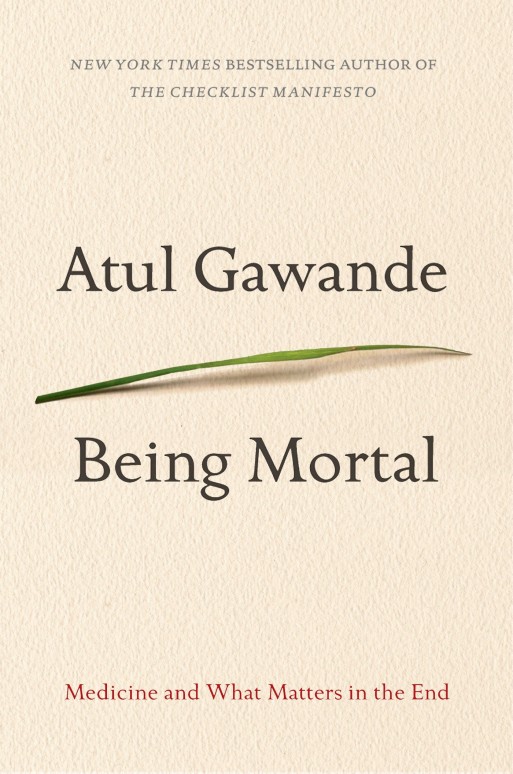
Credit: Wikipedia
The concept of death is a compelling subject to dwell on. As we grow and mature, it becomes ingrained in us that, while a life may be the longest thing we will ever experience, the experience itself is shorter than we think. Death will eventually sneak up on us. In Atul Gawande’s Being Mortal, however, the endocrine surgeon examines this idea through the lens of his own medical background.
In this book, Gawande is able to build a narrative through the collection of experiences that leads to the conclusion that as we perceive ourselves as closer to death, our thoughts on mortality transform our goals and values to that of simpler things. He begins his narrative by writing of his grandfather, who lived in veneration in India because of his status as an experienced elder. While “In America,” he writes, “he would almost certainly have been placed in a nursing home,” because his grandfather thrived in a culture that placed reverence on the wisdom of old age, he was able to “maintain a way of life that few elderly people in modern societies can count on.” Or, in other words, he was able to maintain a life in which he could contribute to his community up until the very end, regardless of the hazards that everyday living can have on an elderly body.
As we perceive ourselves as closer to death, our thoughts on mortality transform our goals and values to that of simpler things.
In America, Gawande notes, our elderly are not venerated for their experience in the community as much as they are sheltered from it. We practically roll our elders up in bubble wrap with the level of attention that we place on maintaining their diets and monitoring their activities as if they were prisoners. And Gawande shows us that doctors are not immune to the stigma that our culture places on facing mortality. One situation in which he must see a client that he knows has little to no chance at surviving a fatal cancer diagnosis, he reveals his own train of thought as he writes, “I remembered…all those studies about how much doctors beat around the bush…But I found myself almost immediately minimizing what I’d said. ‘We’ll bring in an oncologist,’ I hastened to add, ‘Chemotherapy can be very effective in these situations.'” In this, he shows us that even medical professionals find it easier to continue to offer up desperate solutions to extend lives even by mere months rather than help their patients learn to accept mortality gracefully.
We practically roll our elders up in bubble wrap with the level of attention that we place on maintaining their diets, and monitoring their activities as if they were prisoners.

Credit: Wikipedia
In his own way, Gawande also touches on how simple it is to examine the values of our elders and find ways to improve their current living situations to work towards accepting their own mortality. He mentions one study that was performed in both America and China over multiple generations throughout a wide number of cultural shifts over many years, in which it was discovered that “when, as the researchers put it, ‘life’s fragility is primed,’ people’s goals and motives in their everyday lives shift completely. It’s perspective, not age, that matters most.” The study’s main focus was on discovering how the amount of time we have left may depend on how we choose to spend our time. And as one would imagine, regardless of age or cultural background, the study’s subjects unanimously chose to spend their time enjoying family, friends and life’s simpler pleasures as life expectancies perceived to shrink.
In one way, it’s not hard to see why this is the case: as we age and our bodies become more frail, little victories like making it down the driveway, without risking a fall, become much greater triumphs. Spending time with loved ones is also much more important when you run the risk of never having to see them again, or vice versa. But while it is so easy for us to accept this change in attitude towards smaller pleasures, one question still remains: Why is it so hard for us to accept and nurture a change in goals for how the medical community works with patients in this last phase of life?
Related SevenPonds Articles:
• In A Palliative Care Nursing Home
• The Senior Care Blog is a New Resource for Seniors and Senior Caregivers
• How Can We Support the Aging and Elderly? An Interview with Andrew Gaines

 Being Mortal by Atul Gawande
Being Mortal by Atul Gawande



 Funeral Favors Offer Visitors a Tangible Memento
Funeral Favors Offer Visitors a Tangible Memento
 “Comeback” by Prince
“Comeback” by Prince















